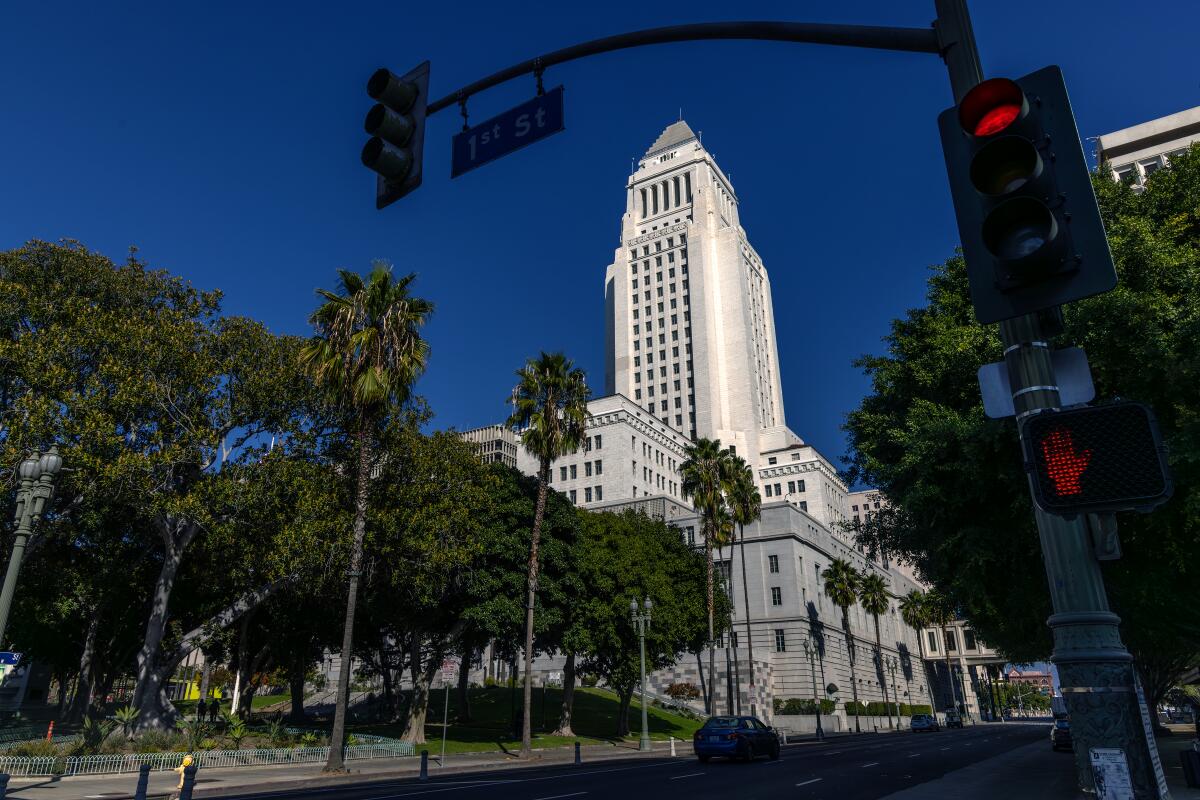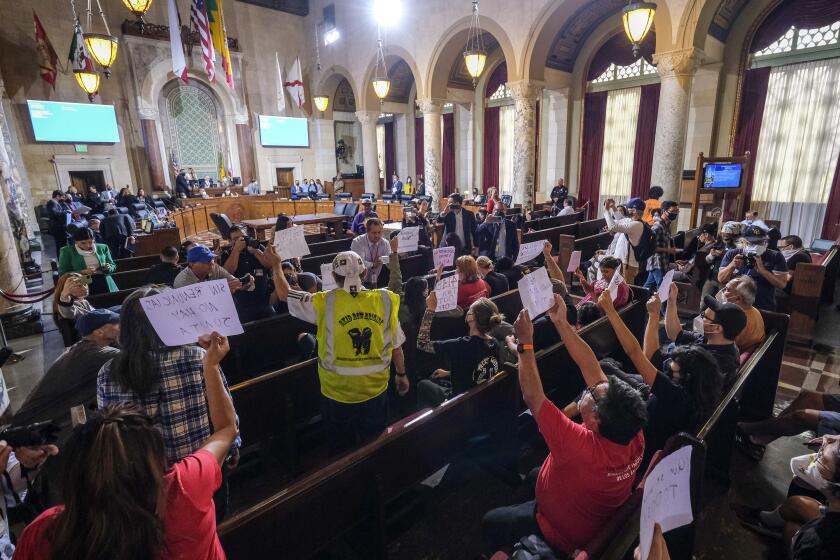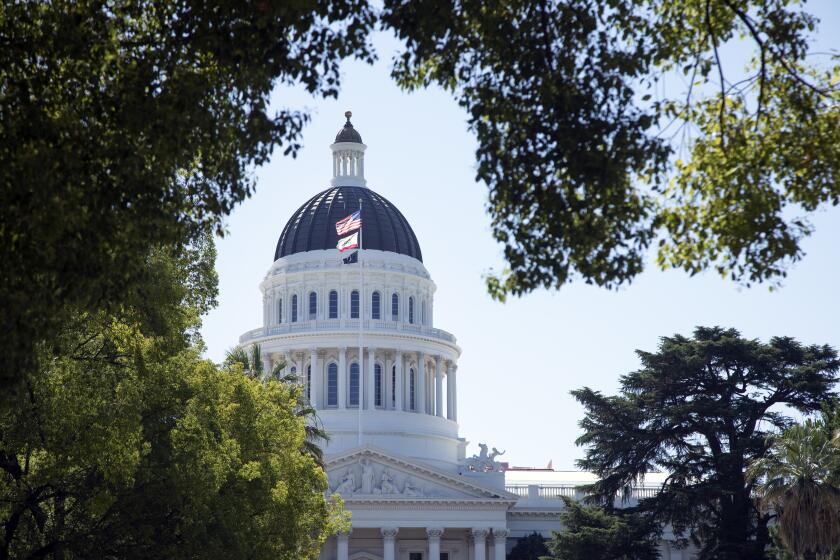Editorial: Lawmakers, quit trying to evade your constituents

- Share via
California lawmakers keep trying to make it easier for local officials to evade the public.
Ever since the end of the COVID emergency, they have introduced bill after bill to whittle away the state’s important open meeting laws so that they and their local-government counterparts can participate in public policy discussions from the privacy of their own dining room tables, driver’s seats or, for all we know, beach blankets.
Already, any member of any local government body in California may attend a meeting by phone as long as they meet basic transparency measures, like posting an agenda at the remote location and allowing the public to be present at their end. Under Assembly Bill 2449, which sunsets after next year, they can even conceal their location — as long as there is an emergency or “just cause” as defined in the statute; for example, illness or child-care responsibilities.
It’s great that technologies widely used during the pandemic allowed more members of the public the option to participate in their city council meetings from home, or anywhere else. But for public meetings to remain public, government officials should still have to be there in person.
Lawmakers want to go further by allowing local leaders to “attend” meetings by video from secret locations without stating any reason.
When their bills fail due to public objections, they simply bring them back the following year.
That’s what has happened with Assembly Bill 817, which would strip away the requirement that members of a local government body who participate in meetings by teleconference at least notify the public of their location and make it accessible.
The bill would apply only to “subsidiary” bodies without final decision-making powers, but that doesn’t mean just informal advisory groups. City Council committees, for example, would be included. Meetings like these are where the important details of new laws are hammered out, and where public input has the greatest impact.
It’s time to end pandemic emergency rules that let California lawmakers and commissioners phone into their public meetings from home or secret locations.
The bill was approved by the Assembly last year but died in the Senate. Now it’s back and faces a key hearing in the Senate on Wednesday.
Let’s hope the committee kills the bill once and for all.
The Legislature has poked enough holes in local governmental meeting requirements already. The point of the Ralph M. Brown open meeting law is to permit the public and the news media to be physically present in the same room as the people who make decisions supposedly on the public’s behalf. This allows the public to watch them deliberate, observe who speaks with them between votes and directly address them from the public microphone. Reporters and constituents can flag lawmakers down during breaks to ask questions.
Watching them on television or a laptop is not the same. Commenting on their proposals through a telephone or on Zoom is not the same.
Southern California air quality officials discussed port pollution at a luxury Rancho Mirage resort 100 miles from the harbor, when they should be adopting long-delaying rules for L.A. and Long Beach ports to slash health-damaging emissions.
Certainly government bodies should use those technologies to permit a larger portion of the public to participate if they can’t attend meetings in person, but the reverse isn’t true. Remote participation should not be the public’s only way of attending. Nor should remote participation be the norm for officials. Remote access is a convenience for the public, not for officials who’d just as soon avoid scrutiny.
Supporters of the bill claim that it’s a necessary route to allowing more people to serve as elected or appointed officials. Competing commitments like child care or physical challenges can make it excessively difficult to attend meetings.
But they can already do that under AB 2449’s “just cause” exceptions and can discuss making those changes permanent next year when it’s up for review. AB 817 would circumvent that review and permanently eliminate the need for a just cause.
Six bills just passed out of the Assembly, along with AB 817, to carve away even more public rights and official responsibilities in public meetings, based on factors such as the subject matter being discussed (threats to cybersecurity, for example) or the particular body that is meeting (the Tri-Dam Project or the Clean Power Alliance of Southern California).
It’s the governmental version of long COVID — a lingering nostalgia among public officials for 4-year-old emergency lock-down provisions that suspended open meeting requirements and allowed them to escape the direct scrutiny of their constituents.
But the emergency is over, and so is the need to keep making exceptions to the public’s right to be present at government meetings. AB 817 is not a step forward for the public.
More to Read
A cure for the common opinion
Get thought-provoking perspectives with our weekly newsletter.
You may occasionally receive promotional content from the Los Angeles Times.













